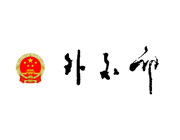


African Members of FOCAC
- Algeria
- Angola
- Benin
- Botswana
- Burkina Faso
- Burundi
- Cabo Verde
- Cameroon
- Central Africa
- Chad
- Comoros
- Congo
- Cote d'Ivoire
- Congo(Kinshasa)
- Djibouti
- Egypt
- Equatorial Guinea
- Eritrea
- Ethiopia
- Gabon
- Gambia
- Ghana
- Guinea
- Guinea-Bissau
- Kenya
- Lesotho
- Liberia
- Libya
- Madagascar
- Malawi
- Mali
- Mauritania
- Mauritius
- Morocco
- Mozambique
- Namibia
- Niger
- Nigeria
- Rwanda
- Sao Tome and Principe
- Senegal
- Seychelles
- Sierra Leone
- Somalia
- South Africa
- South Sudan
- Sudan
- Tanzania
- Togo
- Tunisia
- Uganda
- Zambia
- Zimbabwe
- The Commission of the African Union
Burundi
(Updated February 2018)
【Official Name】Republic of Burundi
【Area】 27,834 k㎡
【Population】10.5 million (2016). 84% of the population are Hutu, 15% are Tutsi and 1% are Twa. The official languages are Kirundi, French,and English, and Kirundi is recognized as the national language. Swahili is also spoken. 61% of the population are Roman Catholic, 24% are Protestants, 3.2% adhere to indigenous religions and the remaining practice other religions or have no affiliation.
【Capital】Bujumbura, with a population of around 1 million (2013)
【Head of State】President Pierre Nkurunziza(Since 2005)
【Holiday】National Day (1 July)
【Geography and Climate】 Burundi is a landlocked country to the south of the equator in central eastern Africa, bordered by Rwanda to the north, Tanzania to the east and south, and the Democratic Republic of the Congo to the west. The southwestern border runs through Lake Tanganyika. Western lake and valley areas and eastern regions have a tropical savanna climate and central and western areas have a tropical highland climate. Average annual temperature varies between 20℃ and 24℃, and the highest may reach 33℃. Long wet season is from February to May and September to November is the short wet season. Other months are dry season.




